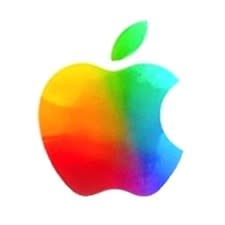Why research data about Apple sales is a bunch of bull

An iWatch. An iRing. An iTV. Just a few items that, if analysts actually knew what they were talking about, would already be splashed across Apple's online retail store, ready for purchase.
It's no secret that analyst predictions regarding Apple are typically suspect at best. After all, fifth-hand and anonymous rumors emanating from Apple's supply chain aren't exactly confidence-building data points.
One would, however, assume that cold hard data compiled by professional research firms might inspire just a tad more confidence. So while only Apple truly knows what products it will release in the future, we can, at the very least, count on research firms to give us the inside scoop as to how Apple's current products are selling, right?
Wrong.
Apple research data is often contradictory in nature and bears a striking resemblance to supermarket celebrity magazines; pick up one magazine and Kanye West and Kim Kardashian are looking to adopt; pick up another and they're filing for divorce.
In short, if you really want to know how Apple's products are selling, you have to hear it straight from Apple. A pair of research reports released earlier this month help support this rather obvious premise.
Last week, the research firm Gartner released preliminary US sales data for PC sales from the Q4 of 2013. The report found that Apple shipped 2.17 million Macs last quarter, giving it a 13.7 percent share of the US market.
IDC, meanwhile, released its own sales data which found that Apple shipped only 1.6 million Mac units during the holiday quarter.
With such varying and ultimately flimsy data, it's easy to extrapolate all sorts of trends that may or may not be based in reality. If you're looking at Gartner and IDC side by side, one report would have you believe that Apple's share of the PC market grew last quarter while the other would have you believe that it shrunk.
I can't help but be reminded of an all-time great Simpsons quote from Homer Simpson:
People can come up with statistics to prove anything, Kent. Forty percent of all people know that.
The lesson? Don't believe anything, or perhaps everything, you read when it comes to analyst data.
Remember the stellar launch of Apple's 2013 iPhone lineup this past September? You know, when Apple announced sales of 9 million iPhones in just three days? Well, you might also recall that analyst Gene Munster, apparently using a statistical model in dire need of some fine-tuning, predicted iPhone sales of 5 to 6 million.
Again, we'd all be well-advised to wait for official numbers from Apple before jumping to any foregone conclusions about how disappointing or pleasantly surprising Apple's sales data is.
And one final parting shot for the road:
You might recall this doozy from the research firm Pyramid Research. Back in 2011, they predicted that Windows Phone would become the top selling smartphone worldwide by 2015.
As for real numbers, Apple will divulge all come January 27 at the company's earnings conference call. And for the record, Apple during the 2012 holiday quarter sold 4.1 million Macs.

